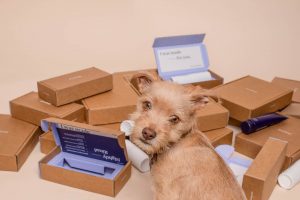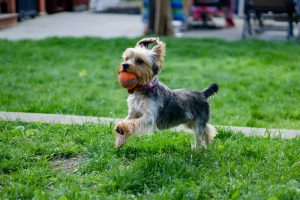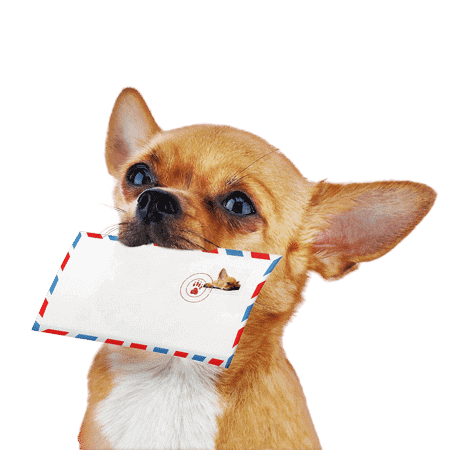When you adopt a dog, whether it’s a puppy or an adult, and you welcome it into your home, the first necessity and the first training is, of course, that of cleanliness.
First of all, for obvious reasons of hygiene, but also so that the integration of the dog in the social group is as pleasant and fast as possible.
Take your time and do things properly.
For a dog to relieve itself outside, you have to respect specific steps and, above all, be patient! Indeed, not all dogs will learn at the same pace.
Some dogs will have more difficulties than others to become clean; some will be victims of lousy learning, bad habits, incapacity to hold back, etc.
Moreover, wanting to go too fast in this learning process can quickly lead the owners to make mistakes, to get angry and sometimes even to feed and reinforce this “non learning”.
For example, a dog who unfortunately cannot hold back, who is scolded several hours later or who is forced to smell/touch his “mistake” with his nose will not learn to be housebroken any faster, quite the contrary.
A reminder of what you absolutely must not do
Scolding after a mistake you made while you were away: the dog lives in the moment and will not understand why he is being punished for it. He will not understand anything at all and will consider you as an unreliable being.
Putting your dog’s nose in his nonsense: this technique is humiliating and serves no purpose. It sometimes even causes dogs to eat their faeces so as not to leave any traces.
Cleaning with bleach: the smell of bleach is very similar to that of urine for dogs. Cleaning with bleach would be like leaving a new scent message that your dog will be happy to “re-layer” on top of.
Cleaning in front of the dog: it is better to isolate your dog while you clean; he might see it as a game.
What to do to teach your puppy to relieve himself outside
Now that you know what you absolutely must not do, let’s see what you must do to put all the chances on your side but especially on your dog’s side to succeed in making him clean:
Of course, you should always catch your dog in the act to intervene.
If you see him doing this, firmly say “no” and then carry him outside.
If by chance he finishes his business outside, reward him warmly.
After your dog has done his business outside, in the garden or on a walk, reward him with a high-pitched voice and a “that’s nice” or “yes”. Never be afraid of ridicule and reinforce good behaviour every time.
Always remember that reinforcing good behaviour will always be more productive and effective in the long run than punishing bad behaviour.
If you live in an apartment on the 5th floor, this can be more of a problem, but it is up to you to take your dog/puppy out regularly, especially at the times when he/she will want to relieve himself/herself the most, i.e.:
when he wakes up,
after eating,
after doing an activity (playing, petting, etc.).
Additional tips
For puppies, when you are in your garden, you can also massage their belly to stimulate them.
You can also leave a few drops of bleach in the exact spots where you want your dog to relieve itself outside.
On the other hand, if your dog always poops in the same places, you can use a dog repellent in those areas.
Finally, if you live in the country, I don’t recommend free access to the outdoors because it may teach your dog to relieve himself outside, but it won’t teach him to restrain himself from doing so if you have to leave him at home locked up one day.
When should you worry about your dog not being clean?
Many owners worry about their dog not being potty trained. Still, this concern is often unfounded, especially if the dog is not yet six months old; for example, he may not yet have the physical ability to restrain himself.
However, if despite your goodwill, your good attitude and your suitable training methods, your dog still does not manage to relieve himself outside and there are still some accidents from time to time, it is indeed time to ask yourself some questions:
Could he have a health problem: kidney problems in particular. Do not hesitate to consult your veterinarian to rule out any disease that could physically prevent him from holding it.
Are the messes done in your absence or right in front of you? If they are done in your absence, it may be necessary to dig deeper into anxiety or frustration. If they are done in front of you, perhaps review the initial learning or indeed a health problem.
Did you respect all the steps and good attitudes to adopt? Yes, because sometimes it only takes one time when you “slip up” and send a different message to your dog, and the whole learning process can be called into question.
Isn’t the dog left indoors for too long without being able to relieve himself outside?
So many questions to ask yourself, and that a professional in education and canine behaviour will help you clarify. He will know how to adapt to your situation, environment, and dog because each case has its solution.
There are universal solutions and techniques, but the essential thing in the education of dogs, whether it is for cleanliness or anything else, is to adapt to each one of them!





